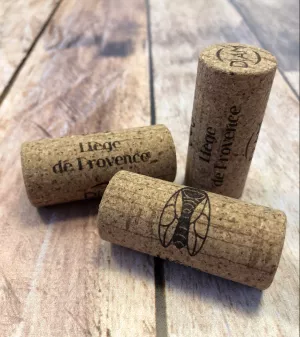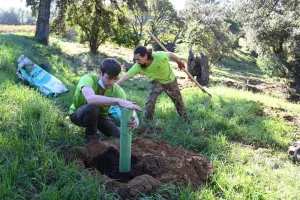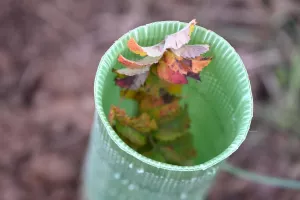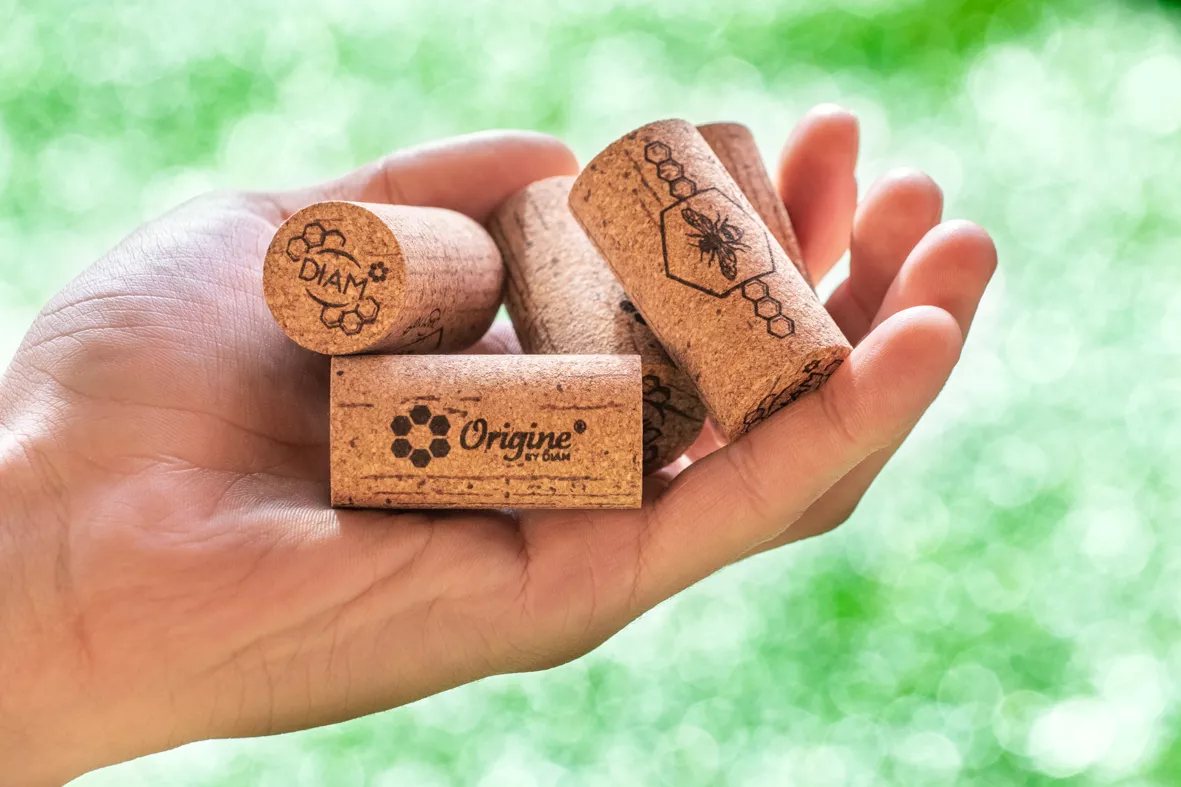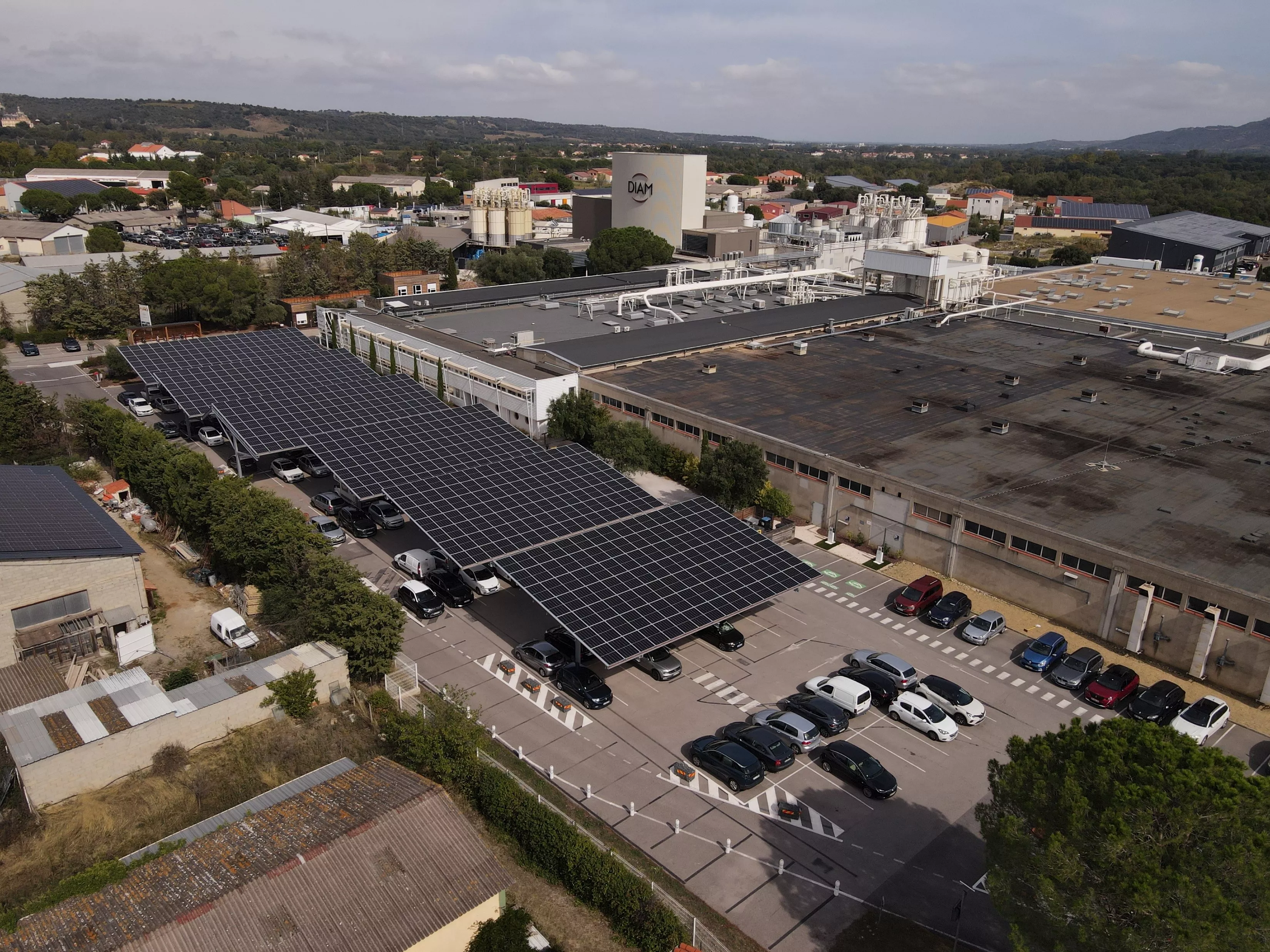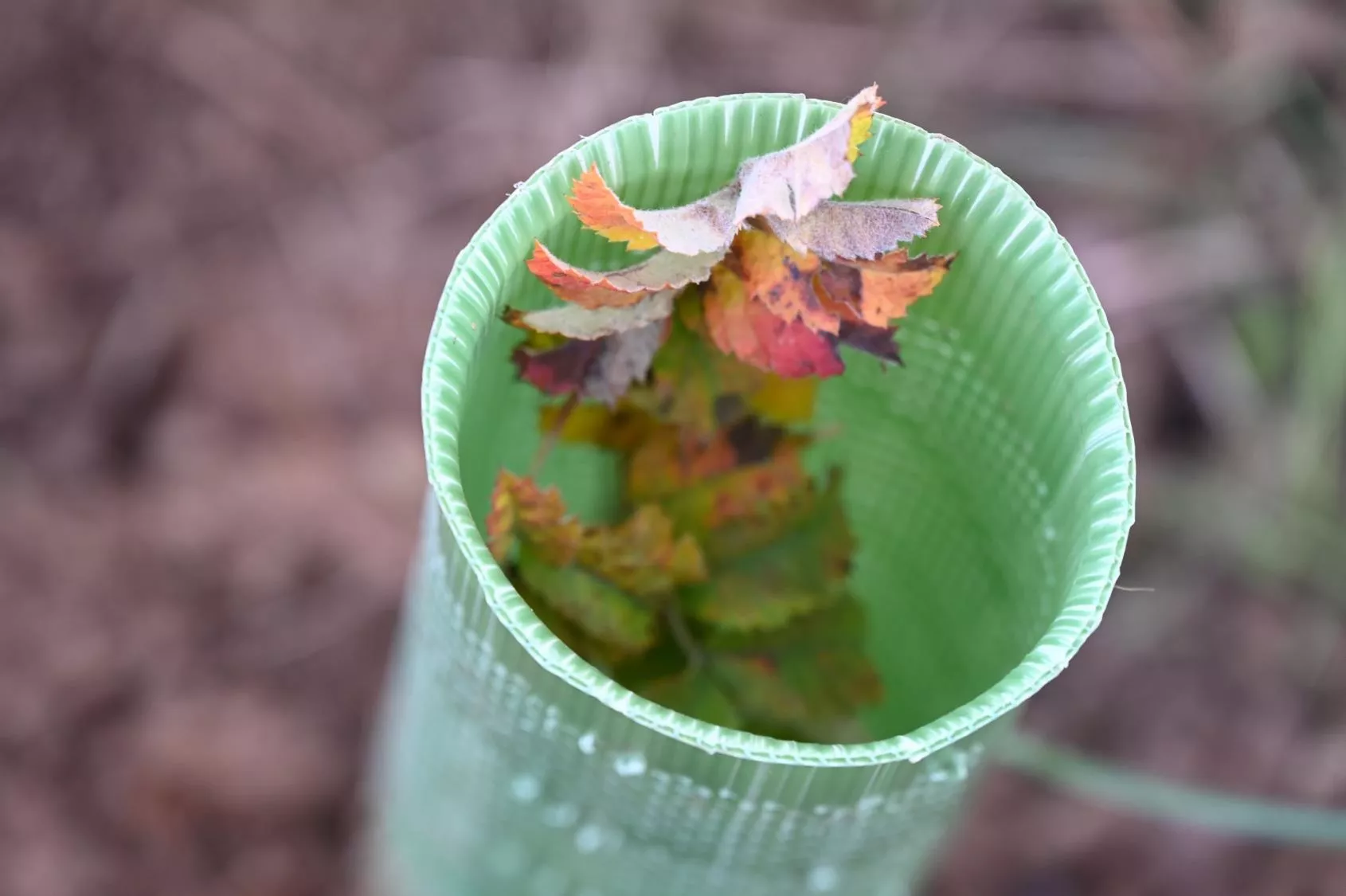
DIAM supports a large-scale cork oak tree plantation programme in Provence.
For more than a decade, Diam Bouchage, French cork manufacturer and global leader in technological corking solutions, has invested so as to revitalise the French cork industry. In November 2020, the company is joining forces with the Sud Provence Alpes Côte d’Azur Region and ASL Suberaie Varoise to plant a total of 3,252 cork oaks across 6 hectares of land in Provence.
DEVELOPING CORK PRODUCTION IN FRANCE AND PROVENCE
Since 2012, Diam has sought to revitalise the French cork industry. French cork production is today estimated to stand at around 1,500 tonnes per year from the 200,000 tonnes produced globally each year. This French industry was at its peak in the early 20th Century with production of over 10,000 tonnes per year. Out of a constant concern for sustainable development, Diam is supporting efforts to revitalise the local sectors in the Pyrénées Orientales, the Var, Corsica and the Landes regions thanks to its ecologically-responsible purchasing policy.
CORK OAKS, AN ALLY OF CHOICE
“In addition to the many virtues of cork, the cork oak is something of a formidable tree”, states Fabien Nguyen, Cork Purchasing Director at Diam Bouchage. This species of tree is a genuine ally in fighting fires, which is the public enemy number 1 for forests in the Var region of France. Thanks to its thick layer of bark, it acts as a “firewall”, and is able to withstand the flames and regenerate thanks to its high level of resilience. Cork oak trees also harbour a wonderful array of plant and animal biodiversity around them and help protect our countryside. It is also widely recognised as a major carbon store as these trees are never cut down for production of cork.
RELYING ON UPSTREAM STAKEHOLDERS IN THE SECTOR
In 2014, the cork manufacturer began its revitalisation of the cork industry in the Var region by signing contracts for the purchase of cork grown in the Var from ASL Suberaie Varoise who supports private forestry owners in the Var. “Today, Diam buys anywhere between 100 and 150 tonnes of cork each year from ASL Suberaie Varoise from the 30,000 tonnes purchased annually by the company to manufacture its corks. And each year we try to increase the volumes purchased in the framework of this collaboration”, states Fabien Nguyen.
GENUINE CORKS FOR THE WINE SECTOR
Using cork harvested from the Var, Diam produces corks which are used in the wine production industry in Provence. There are an increasing number of wine producers who are turning to genuine corks from their local area for bottling. “Corks from Provence form part of our brand promise: a cooperative acting for its local area, and involved in regenerating the forests and offering ecologically-responsible products”, states Gaëtan Hawadier, Marketing Director at Estandon Coopérative in Provence, who each year purchases over 2.5 million corks from Provence.
A PLANTATION REGENERATING THE CORK OAK FORESTS IN THE VAR REGION
In November 2020, as part of the initiative aimed at planting 1 million trees in the Southern French region led by the Sud Provence Alpes Côte d’azur Regional authorities, a total of 3,252 cork oaks were planted across 6.4 hectares of forest belonging to five private owners. These forests are located in Hyères, Vidauban, Ramatuelle and La Londe les Maures. This represents the first time that a plantation of cork oaks of such large-scale has been undertaken in Provence. This plantation is primarily undertaken so as to assist with the regeneration of cork oak forests in the Var Region which are ageing, and to offer some genetic mixing. The 3,252 saplings come from the Luberon tree nursery (Groupe Naudet) located in Lambesc (13). This is a plantation for the future as it is necessary to wait for between 25 to 30 years before being able to harvest the first layer of cork which will not be useable in the corking industry. Two other harvests will be necessary at 12/15-year intervals so as to harvest cork which can be used in the cork industry. In total, it will be necessary to wait for around 50 years before being able to harvest cork fit for use in bottles.
THE DELICATE OPERATION OF PLANTATION
The plantation scheme was launched in November 2019. ASL Suberaie Varoise issued a call for tenders for private owners who were motivated in choosing plantation sites. Propitious plantation areas were located in the two mountainous areas of Maures and Estérel, which have ideal soil and climate conditions. The soil should neither be too gravelly, nor too dry, but rich in depth so as the tree can take root under optimal conditions.
FUNDING TO ASSIST PRIVATE FORESTRY OWNERS
80% of forestry land in the Var region is privately-owned. Plantation costs 15,000 euros per hectare over 5 years as the tree requires support during the initial years of its lifetime before gaining autonomy. “Saplings need to be supervised for 5 years. The surrounding environment needs to be cleared so as the sapling is not suffocated by the scrubland. It also needs to be pruned so as no low-hanging branches can germinate”, explains Chloé Monta, Forestry Engineer from ASL Suberaie Varoise. Diam funds a total of 40% of the plantation and upkeep for the first 2 years, increasing to 80% for the following 3 years. The Sud Provence Alpes Côte d’Azur Regional authorities provide 40% funding for the first 2 years.
WHAT DOES THE FUTURE HOLD FOR THE CORK INDUSTRY IN PROVENCE?
Plantation represents a further step towards reinvigoration of the cork industry in Provence. Harvesting is also beginning to undergo mechanisation. Mechanisation training programmes are currently under development. These will allow forest owners to be able to harvest cork from their own trees.
KEY FIGURES:
The Diam Bouchage production plant is located in the Pyrénées Orientales
Diam produces some 2.4 billion corks each year, with 10 million coming from regional cork trees
Each year, Diam purchases 30,000 tonnes of cork, with 300 tonnes coming from France (1%)
The Var Region produces 300 tonnes of cork per year
ASL Suberaie Varoise unites some 300 private forestry owners covering 14,600 hectares of managed forests.
http://www.suberaievaroise.com/
https://www.maregionsud.fr/
https://www.figuiere-provence.com/
https://www.comenprovence.fr/
http://misenboite.net/
https://www.horizonservices83.com/
